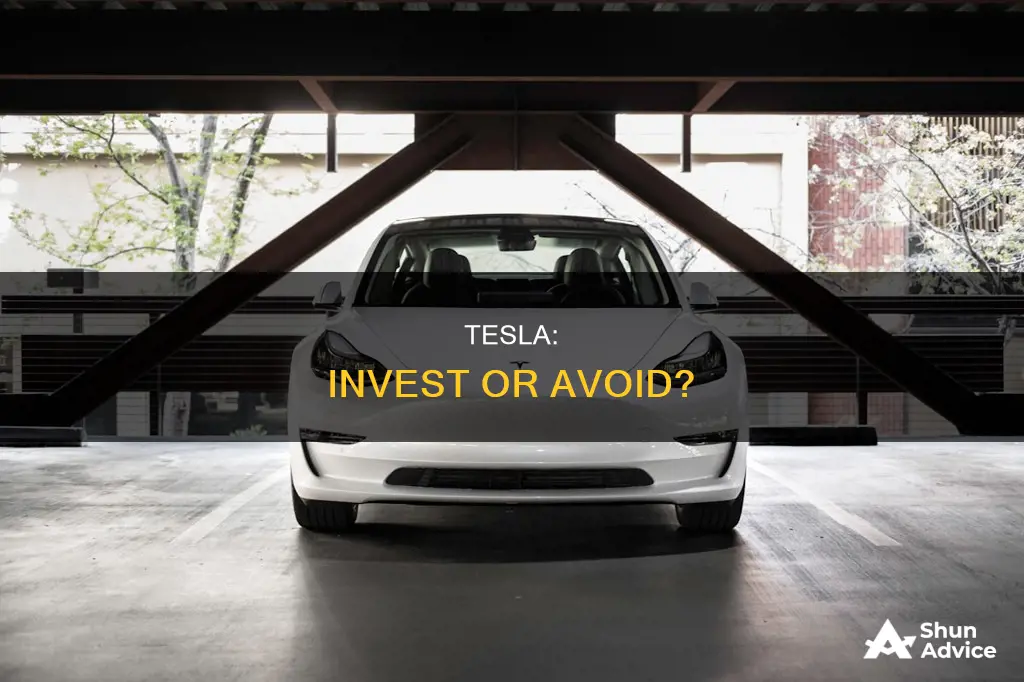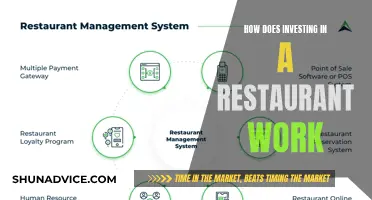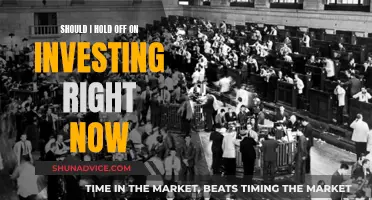
Tesla is a highly polarising company when it comes to investment. Some investors are attracted to its world-leading position in the electric vehicle (EV) market, while others are hesitant due to its high valuation and the unpredictability of CEO Elon Musk.
On the one hand, Tesla has demonstrated impressive growth and financial performance. It has consistently exceeded expectations in revenue growth and profitability, and its share price has skyrocketed since its IPO in 2010. Tesla's commitment to sustainability and reducing its environmental impact also makes it an attractive investment option for those who want their investments to align with their values.
On the other hand, there are several risks associated with investing in Tesla. The company faces intense competition from both legacy automakers and other EV manufacturers, and its cars are still too expensive for many consumers. Additionally, Tesla's future success is heavily dependent on Elon Musk, a part-time CEO with a reputation for impulsive behaviour and controversial statements.
So, should people invest in Tesla? The answer depends on individual risk appetite and investment strategy. While Tesla offers an attractive opportunity for those who believe in the future of autonomous driving and sustainable transportation, it is important to carefully consider the potential risks and conduct thorough research before making any investment decisions.
What You'll Learn

The company's commitment to sustainability and reducing its environmental impact
Tesla's commitment to sustainability and reducing its environmental impact is evident in several ways. Firstly, the company's mission is "to accelerate the world's transition to sustainable energy" by focusing on renewable energy sources. This is reflected in their products, which include electric vehicles (EVs), solar energy generation systems, and battery storage solutions. Every product Tesla sells helps owners lower emissions, with their customers avoiding releasing over 20 million metric tons of CO2e into the atmosphere in 2023.
In addition to their focus on renewable energy, Tesla also prioritizes minimizing its environmental footprint across its manufacturing processes. They aim for all their factories to be carbon neutral and build each new factory to be more sustainable than the last. For example, their Gigafactory in Shanghai uses less energy per vehicle produced than their Fremont facility, and 67% of the electricity used in their Berlin factory in 2023 was matched with renewables. Tesla also recycles 90% of its manufacturing waste and uses less water per vehicle than the industry average.
Furthermore, Tesla has made efforts to increase the sustainability of their supply chain. They source their raw materials responsibly and aim to reduce the amount of mining required, as a shift to a sustainable energy economy will need less mining than fossil fuels. Additionally, they have switched to using low-VOC, water-based paint, and their batteries are now made from recycled materials, reducing long-term emissions for production.
Tesla's approach to sustainability extends beyond just environmental considerations. The company also prioritizes social impact and the well-being of its employees, offering competitive pay and benefits, as well as unique opportunities for personal growth and community engagement.
Overall, Tesla's commitment to sustainability and reducing its environmental impact is a key part of its business strategy and is reflected in its products, manufacturing processes, supply chain, and corporate social responsibility initiatives.
China's Bubble: Global Investment Risk
You may want to see also

Tesla's financial performance and potential for future growth
Tesla's financial performance has been impressive in recent years. In 2020, the company reported a surprise profit in the third quarter, and in 2021, it reported a year-over-year revenue increase of more than 40 percent, to $8.8 billion. In the third quarter of 2022, Tesla manufactured 365,923 cars, a new record for the company.
Tesla's market capitalization is now larger than that of the nine largest global automakers combined, despite selling a fraction of the number of cars. This financial success is largely due to the rapid growth of the EV market and Tesla's strong position within it.
Tesla's energy generation and storage segment has also contributed significantly to its financial performance. The company's solar and battery storage products have been well-received by customers and analysts, who see a lot of potential for growth in this segment.
Looking ahead, Tesla has a number of growth drivers that are expected to boost its revenue and earnings in the coming years. Firstly, the global market for electric vehicles is expected to continue growing rapidly. According to a report by the International Energy Agency, the global electric car fleet is projected to increase from 5 million in 2017 to over 125 million by 2030. As the global leader in the electric vehicle market, Tesla is well-positioned to benefit from this trend.
Secondly, Tesla is expanding its presence in new markets, such as China and Europe, and is expected to enter new segments and product lines, such as electric semi-trucks and electric motorcycles, which could open up new revenue streams.
Finally, Tesla is also expected to benefit from the growing demand for sustainable energy solutions, such as solar panel and battery storage systems. The company's energy generation and storage segment is forecast to become a significant contributor to its revenue and earnings in the coming years.
However, it is important to note that Tesla faces several risks and challenges. The company's cars are still expensive, and it may struggle to recoup its massive expenditures on research and development, as well as its battery factory. Tesla also faces increasing competition from both legacy automakers and other EV manufacturers. Additionally, the company's future success will depend heavily on its ability to ramp up manufacturing capacity and infrastructure.
Why Invest in Entertainment?
You may want to see also

The unpredictability of CEO Elon Musk
Elon Musk is a highly unpredictable CEO, as evidenced by his controversial comments, unpredictable behaviour, and controversial Twitter acquisition. Musk's unpredictability has had a significant impact on Tesla's stock price and the company's overall performance.
Controversial Comments
Elon Musk's controversial comments have often landed him and Tesla in hot water. In August 2018, Musk tweeted about taking Tesla private at $420 per share, which resulted in him stepping down as Tesla's chairman. On another occasion, he knocked billions off Tesla's market value with a single tweet, stating that the "Tesla stock price is too high imo [in my opinion]." These comments have led to concerns about Musk's leadership and the potential impact on Tesla's stock price.
Unpredictable Behaviour
Musk's unpredictable behaviour has also raised concerns among investors. His decision-making, such as his willingness to go bankrupt and use his personal wealth to keep Tesla afloat during financial difficulties, demonstrates his maverick approach. Additionally, Musk's complicated personal life, including a very public and lengthy divorce, has drawn attention. These factors contribute to the perception of Musk as a controversial and unpredictable leader.
Twitter Acquisition
The acquisition of Twitter by Musk in 2022 further highlighted his unpredictability. After signing a $44 billion deal, Musk backtracked, citing discrepancies in the number of spam accounts reported by Twitter. This caused a heated public debate and resulted in a lawsuit from Twitter. Eventually, Musk agreed to the purchase, but his transition into the company has been rocky, with questionable decisions, botched layoffs, and fleeing advertisers. This has had a negative impact on both Tesla and Twitter's share prices, with Tesla shareholders uncertain about Musk's commitment to the company.
Impact on Tesla
Musk's unpredictability has had a direct impact on Tesla's performance. On the one hand, his resilience, unwavering belief in his ideas, and relentless pursuit of success have contributed to Tesla's success. On the other hand, his controversial comments and unpredictable behaviour have caused volatility in Tesla's stock price and led to concerns about the company's stability.
In conclusion, Elon Musk's unpredictability as a CEO is a double-edged sword. While his relentless pursuit of success and innovation has driven Tesla's growth, his controversial comments and unpredictable behaviour have also caused uncertainty and negatively impacted the company's stock price. As a result, investors considering Tesla should carefully weigh the risks and rewards associated with Musk's leadership.
Dogecoin: Worthy Investment or Just a Meme?
You may want to see also

The company's ability to scale production and meet demand
Tesla's ability to scale production and meet demand is a critical aspect of its operations and future prospects. As the company strives to meet the growing demand for its vehicles, it faces several challenges and opportunities.
One of the main obstacles to mass production is the complexity of manufacturing electric vehicles. Electric vehicles (EVs) consist of numerous intricate components that require precise engineering and assembly. Ensuring the efficient and consistent production of these components at scale is a continuous endeavour for Tesla. The company's reliance on advanced technologies, such as artificial intelligence and automation, also introduces complexities. While automation increases efficiency and reduces labour costs, it demands continuous optimisation to minimise errors and maximise output.
Another significant factor is supply chain management. As Tesla expands its production capacity, securing a steady and reliable supply of raw materials and components becomes essential. This involves establishing and maintaining strong partnerships with suppliers, optimising logistics, and closely monitoring inventory levels to prevent bottlenecks and production delays.
Tesla's vision extends beyond manufacturing EVs. The company aims to establish a robust infrastructure for charging and servicing its vehicles. However, developing charging stations and service centres requires substantial investments and coordination with various stakeholders. Scaling up this infrastructure is challenging as Tesla seeks to accommodate a growing customer base.
To address these challenges, Tesla has been proactive in expanding its production capacity. The company has invested in building new factories and retrofitting existing ones to meet increasing market demand. As of 2024, Tesla has 823 locations worldwide, including showrooms, Service Plus centres, and service facilities. The company is also constructing new factories in Berlin and Austin, Texas, with plans to use the Austin facility as the main production hub for the Tesla Semi and Cybertruck.
In conclusion, Tesla's ability to scale production and meet demand is a dynamic process that requires constant innovation, strategic partnerships, and meticulous planning. The company's commitment to pushing the boundaries of technology and sustainability positions it well to navigate these challenges. However, the complexity of EV manufacturing, supply chain management, and infrastructure development remain areas that require ongoing attention and investment.
Club Members: Cramer's Investing Army
You may want to see also

The impact of regulatory approval on Tesla's future
- Impact on Autonomous Vehicles: Tesla's future plans heavily rely on the successful deployment of autonomous vehicles, particularly for its ride-hailing network. The company's CEO, Elon Musk, has emphasized that autonomous driving is key to Tesla's future, and regulatory approval is a critical factor in realizing this vision.
- Regulatory Hurdles: Tesla faces challenges in obtaining regulatory approval for its autonomous vehicles due to evolving laws and complex regulations that vary across different jurisdictions. These regulations can restrict the design and performance of autonomous features, creating a complex and uncertain regulatory landscape.
- Safety Concerns: Safety is a primary concern for regulators when evaluating autonomous vehicles. Tesla's vehicles are subject to safety standards and regulations, such as the National Highway Traffic Safety Administration (NHTSA) standards in the US. Any issues or delays in meeting these standards may hinder Tesla's ability to deploy its autonomous vehicles.
- Impact on Ride-Hailing Network: The establishment of a ride-hailing network using autonomous vehicles is a significant part of Tesla's future plans. Regulatory approval is crucial for this initiative, as it will determine whether Tesla can legally operate such a service and compete with other ride-sharing companies.
- Global Expansion: Tesla's ability to expand globally is influenced by regulatory approval. Different countries have varying regulations and safety standards for autonomous vehicles, and obtaining approval in multiple jurisdictions is essential for Tesla's worldwide expansion.
- Public Perception: Regulatory approval can impact public perception and trust in Tesla's autonomous technology. Positive regulatory decisions can boost consumer confidence in Tesla's self-driving capabilities, while delays or setbacks in obtaining approval may raise concerns about the technology's safety and reliability.
- Financial Impact: Regulatory approval has financial implications for Tesla. Delays or challenges in obtaining approval may result in increased costs and impact the company's financial performance. On the other hand, successful regulatory approval can lead to increased revenue and market share for Tesla.
Why People Avoid Investing
You may want to see also







